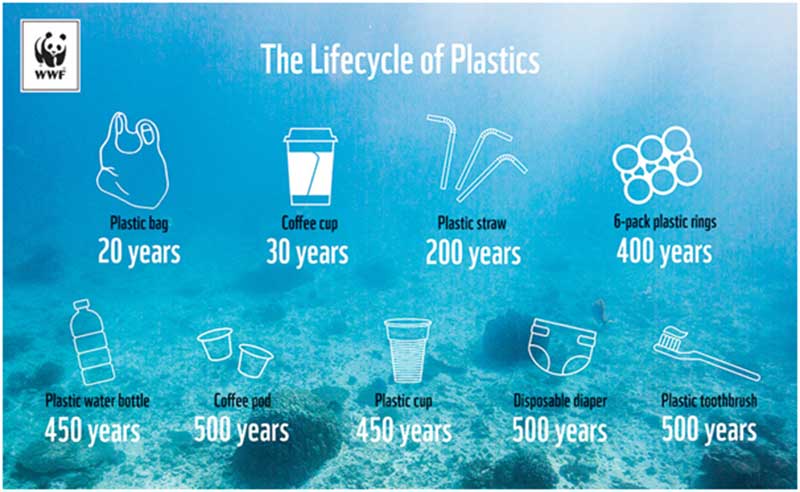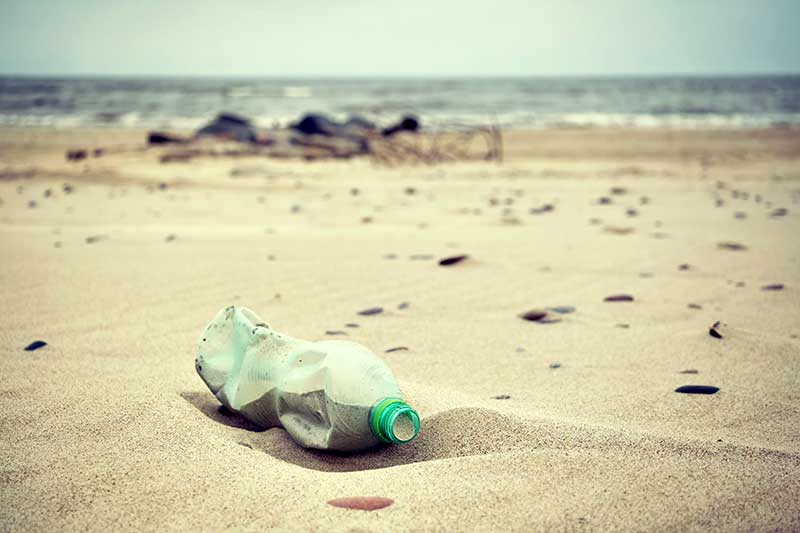Bonaire’s Department of Space and Development submitted a draft regulation to the Executive Council of Bonaire for a disposable plastic ban on certain types of single-use plastics.
An important first step for the disposable plastic ban.
The ban is an important first step in the reduction of disposable plastics on Bonaire. If the regulation is approved, this “plastic legislation” will be part of the local waste regulation. The regulation has a phased structure, which makes it possible to expand the ban with other types of disposable plastics in the near future. In this way, the use of disposable plastics on Bonaire is gradually being phased out.
Preparation for the new legislation began in 2018.
In 2019 a consultation round took place with a wide representation of importers, supermarkets, restaurants, small grocery stores, and hotels on the island. This showed that there was support for the ban on plastic cutlery, straws, stirrers, bags, and food packaging, including Styrofoam. In the first phase, it was therefore decided to ban a group of disposable plastic products that can be relatively easily replaced by sustainable alternatives by local companies.
In 2019, the responsible commissioner Kroon signed a declaration of intent for a ban on disposable plastics together with Minister of the Environment Stientje van Veldhoven-van der Meer. The Island Council had previously passed a motion in 2018 to restrict the use of disposable plastic.
Single-use plastics targeted as the first disposable plastic banned items.
If the draft regulation is adopted, it will be prohibited to distribute or place on the market disposable plastic cutlery, straws, stirrers, bags, and food packaging six months after publication. The disposable plastic ban applies not only to companies but also to persons who earn extra money in a hobby, such as sellers of snacks, who use plastic packaging materials. The plastic regulation will be expanded in phases and should eventually lead to a ban on the most harmful types of disposable plastic.
The reduction of single-use plastics is important for a number of reasons:
- Reduction of waste volume: Bonaire’s landfill is almost full and it is therefore important to reduce the amount of waste.
- Plastic leakage: It takes years for plastic waste to break down. Microplastics end up in our environment through rainfall and waterways.
- Reduce litter: disposable plastics often end up in nature because the material is light and easily carried by the wind, but especially because consumers do not put their waste in the rubbish bins.
- Circular Economy: Reuse of waste on Bonaire offers new opportunities in the field of innovation and employment.

The disposable plastic ban is a positive step for Bonaire.
Many disposable plastics still end up as litter, but in time the ban will lead to a much cleaner Bonaire. The image shows how long it takes for plastic to disappear from our environment. Finally, the regulations regarding disposable plastics are positive for Bonaire’s image as a sustainable destination. The ban forces us to make sustainable choices. In the short term, this may cause an increase in costs for certain products, such as take-out meals. In the long run, however, the benefits outweigh the disadvantages.
Our economy largely depends on the experience of nature, both under and above water. For many of our visitors, coming from the US, Canada, and Europe, sustainable use of nature is self-evident. Sustainability is an increasingly important theme for many tourists when selecting a luxury holiday destination, such as Bonaire. After all, tourists can only enjoy our unique nature if it is plastic-free.
The Netherlands also supports a cleaner environment for Bonaire.
State Secretary Van Veldhoven has pledged to help Bonaire improve its waste management. EUR 2.78 million of financial support has been allocated to Bonaire for, among other things, the local recycling of waste. 88% of Bonaire’s waste is currently deposited in a landfill. This is not environmentally friendly or sustainable. To help the island improve separate waste collection and recycling, part of the financial support will be used to purchase refuse trucks and a crushing machine. The collection of small chemical waste, such as batteries and paint, will also be improved. Furthermore, Bonaire will look into measures to extend the separate collection of household waste.
“The support that Bonaire will receive from the Ministry of Infrastructure and Environment to improve its waste policy, is a fine example of the collaboration between Bonaire and the Dutch government. The financial contribution pledged by State Secretary Van Veldhoven is a new step in our efforts toward a waste-free and clean Bonaire. It will enable Selibon to contribute significantly to our ambition of becoming a Blue Destination. We are very grateful to State Secretary Van Veldhoven for her support.” – Lt. Governor of Bonaire Edison Rijna
Separate waste collection
On the island, the waste (such as paper and cardboard, plastic, glass, and metal packaging such as tins) of a large number of companies, is already collected separately for recycling purposes. The aim is to do the same with the collection of household waste. For this, a re-organization of the waste center will be carried out along with targeted information and guidance to Bonaire’s citizens. The development of plans and rollout is expected to occur in 2021.
(Source: OLB)












